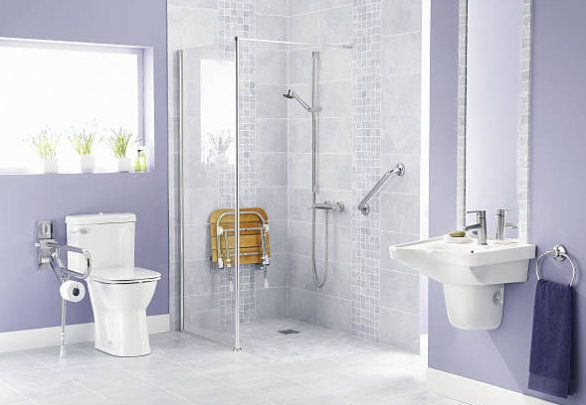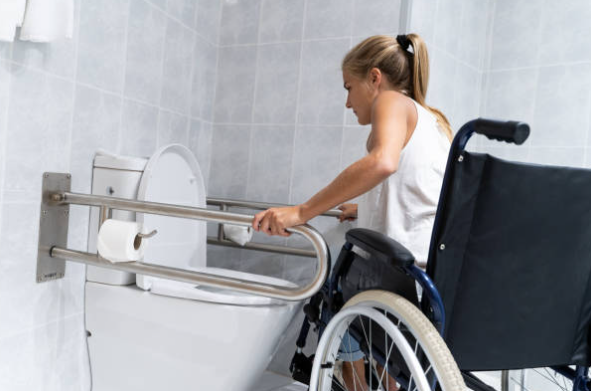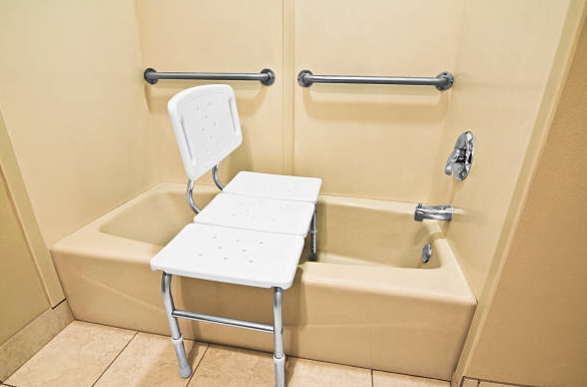Who Can Legally Use Disabled Toilets?
Curious about who can use disabled toilets? This article delves into the guidelines, emphasizing the importance of equal restroom access for individuals with disabilities. Understanding these rules promotes inclusivity, creating a more accessible environment for everyone. Explore who is eligible to use disabled toilets and discover ways to enhance restroom inclusivity, including potential grants for disabled toilets that can aid in necessary accommodations.
Who Has A Right To Use Disabled Toilets?
Everyone deserves access to facilities that cater to their specific needs and ensure their comfort and dignity. Disabled toilets are designed for individuals with disabilities, but it’s important to note that not all disabilities are visible.

While it’s commonly understood that individuals with physical disabilities, such as those who use wheelchairs or have mobility impairments, can use disabled toilets, it’s crucial to recognize that people with invisible disabilities, such as chronic illnesses or mental health conditions, require access to these facilities.
In many countries, the law states that disabled toilets should be made available to anyone with a disability, regardless of whether their disability is visible or not. This includes individuals with mobility impairments, chronic illnesses, mental health conditions, and other disabilities that affect their ability to use a standard restroom.
It’s essential to create an inclusive society where everyone feels welcome and accommodated, and providing access to disabled toilets is a vital part of achieving that goal.
It’s important to remember that disabled toilets are not meant exclusively for people with disabilities. They’re also designed to be accessible for caregivers or family members who need to assist someone with a disability. parents with young children, who require extra space or assistance in the restroom, can also benefit from using disabled toilets.
These facilities are meant to promote inclusivity and ensure that everyone has equal access to basic amenities, regardless of their circumstances.
Related Readings: Composting Toilet Problems
Accommodating Individuals With Disabilities
Accommodating individuals with disabilities involves ensuring that facilities are designed to meet their specific needs and promote inclusivity.

This includes providing accessible disabled toilets for people with disabilities. Disabled toilets are designed to be more spacious and equipped with features such as handrails, lower sinks, and emergency alarms.
These facilities are essential for individuals with mobility issues, as they provide them with the necessary support and assistance to use the restroom independently.
Disabled toilets are not exclusively for people with physical disabilities; they are also available for individuals with invisible disabilities.
Many conditions, such as Crohn’s disease, irritable bowel syndrome, or bladder control issues, not be immediately apparent, but they still require the use of accessible facilities.
It is important to remember that not all disabilities are visible, and everyone deserves equal access to necessary amenities.
To ensure that individuals with disabilities can use disabled toilets, it is crucial for businesses and public places to make these facilities readily available and easily accessible.
This means maintaining the disabled toilets regularly, ensuring they are clean and functional, and providing clear signage to indicate their location.
Ensuring Inclusive Restroom Access
Ensure that all individuals have equal access to restroom facilities by implementing inclusive measures. One way to achieve this is by providing accessible restroom stalls that are designed for individuals with disabilities. These stalls are larger in size and equipped with handrails for added support.

By having these accessible stalls available, individuals with disabilities can use the restroom comfortably and without any hindrances.
Learn More: How To Disabled Or Elderly People Use Squat Toilets?
Conclusion
In conclusion, disabled toilets are designed for individuals with disabilities, offering a safe and accessible space with necessary accommodations. Prioritizing the needs of those with disabilities is crucial for inclusive restroom access. Understanding and adhering to jurisdiction-specific regulations is essential, as guidelines vary. Respecting these rules contributes to creating a more equitable and inclusive society, fostering an environment where everyone feels valued and supported.



